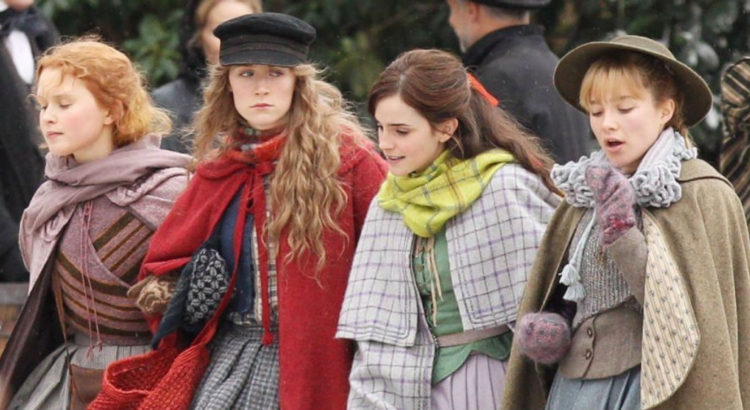Little Women was a highly enjoyable (if somewhat saccharine) film. I wasn’t previously familiar with the novel, but after seeing this I looked into the source material and previous adaptations to contextualize what I saw. Ultimately, I think Greta Gerwig did a pretty good job at grounding and animating a PG story that has been told many times in many different ways.
Gerwig notably changes the plot structure in this version of Little Women, using the non-chronological order to reflect interesting parallels from the sisters’ childhood and adulthood. I found this be effective in conveying themes and character development, and with that, it also reflects Gerwig’s thorough understanding of the text. The ending, in its own meta way, acknowledged the fact that Alcott never wanted to marry off Jo’s character–in the same way the author herself never married. As much as I appreciate Louis Garrel’s work, I somewhat wish Gerwig took the final step of just eliminating his character and the convenient marriage ending for Jo. At the same time, though, I still can appreciate the awareness and nods to Alcott’s intentions reflected in Jo and her discussions with her editor.
There were many actors and actresses I like in this film, but I was surprised to find that Florence Pugh had the best performance of them all. This is the first time I’ve seen her work (to be fully transparent, I’m just too squeamish for Ari Aster’s movies), and I found her to inhabit Amy in a very believable and watchable way. Sometimes her performance honestly contrasted the others to their detriment. Maybe this is due to her character being more traditional, but Emma Watson’s Meg seemed a lot less three dimensional compared to Florence Pugh’s Amy. Lastly, I thought Bob Odenkirk as the father of the March family was an interesting casting choice. His comedic presence precedes him for me personally, so seeing him inserted into this drama felt like an act of satire. While that took me out of the story a little bit, I think it also created this meta-textual feeling that this adored father figure as a cornerstone of the family is a joke. The older March sisters and their mother are the ones actually sustaining the family, so at the end of the day, I think that choice (if it was an intentional choice) and that new meaning was smart and added another layer to this generation’s adaptation.
Little Women is an enjoyable film that makes you consider the nature of adaptation when one takes a look at the many, many other versions over the past 100 years. It’s interesting to use this text as a way of diagnosing society’s changing attitudes towards women and feminism, past simply its utility as a warm story of family and love. I highly recommend seeing this film and doing a little research into this culturally significant story and its implications through time.


